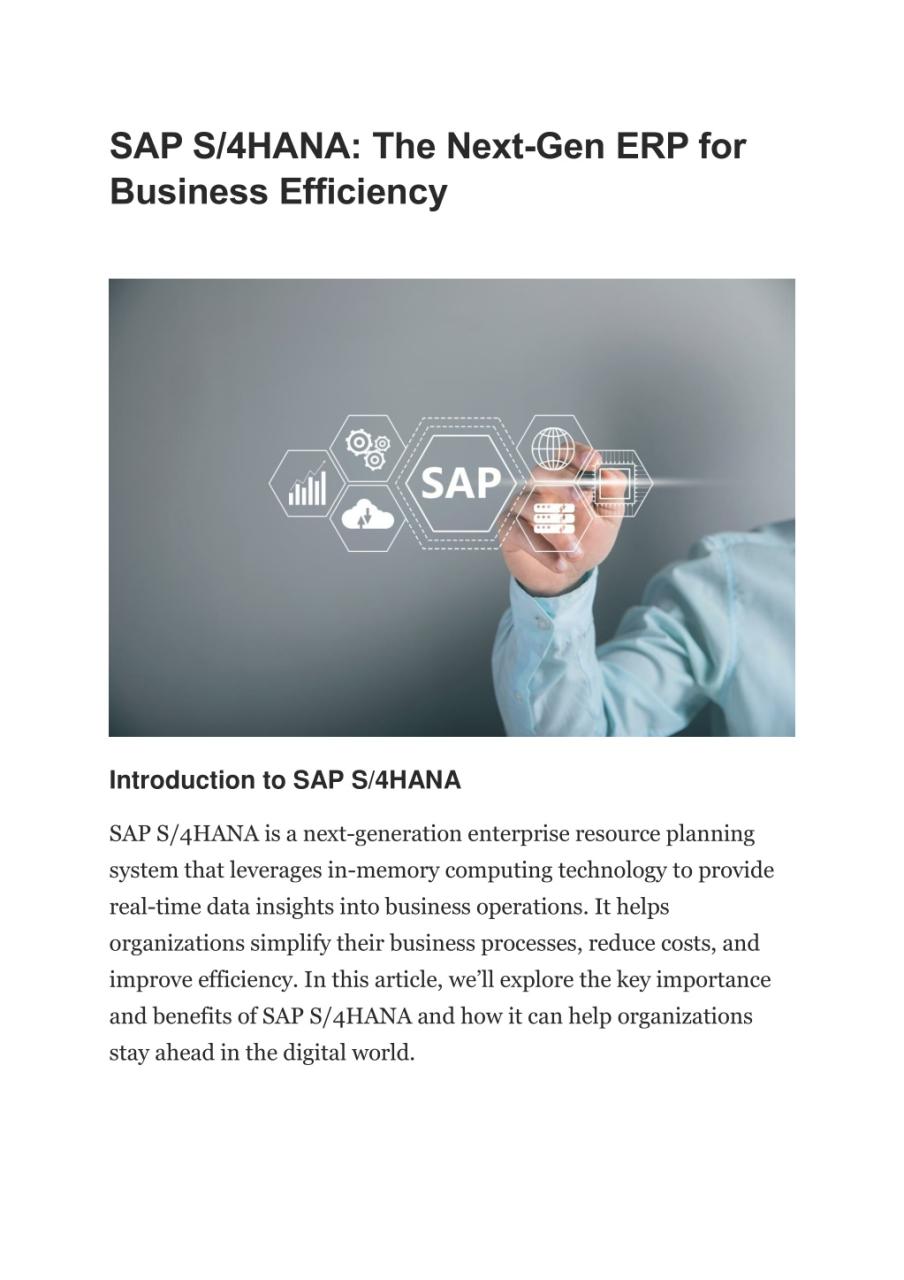ERP Accounting: A Comprehensive Guide to Streamlining Business Operations
Introduction
In the realm of business management, the advent of Enterprise Resource Planning (ERP) systems has revolutionized the way organizations manage their operations. ERP accounting, a core component of these systems, plays a pivotal role in streamlining financial processes, enhancing data accuracy, and driving informed decision-making.
ERP accounting encompasses a wide range of functionalities, from general ledger management and accounts payable/receivable processing to budgeting, forecasting, and financial reporting. By integrating these functions into a single, centralized system, businesses can gain a comprehensive view of their financial performance, improve operational efficiency, and mitigate risks.
Advantages of ERP Accounting
1. Enhanced Data Accuracy and Consistency
ERP systems enforce data integrity and consistency across all modules, eliminating the risk of errors and inconsistencies that can arise from manual data entry or multiple data sources.
2. Streamlined Financial Processes
By automating repetitive tasks such as invoice processing, payment reconciliation, and financial reporting, ERP accounting significantly reduces the time and effort required for financial operations.
3. Real-Time Visibility and Reporting
 .
.
ERP systems provide real-time access to financial data, allowing businesses to monitor their performance, identify trends, and make timely decisions.
4. Improved Collaboration and Communication
ERP accounting facilitates collaboration among different departments, providing a shared platform for accessing and sharing financial information.
5. Enhanced Compliance and Regulatory Reporting
ERP systems help businesses comply with complex financial regulations and reporting requirements, ensuring accuracy and timeliness.
Disadvantages of ERP Accounting
1. High Implementation Cost
ERP systems can be expensive to implement, requiring significant upfront investment in software, hardware, and consulting services.
2. Complexity and Customization
ERP systems are complex and require customization to meet specific business requirements, which can be time-consuming and costly.
3. Data Migration Challenges
 .
.
Migrating data from legacy systems to ERP systems can be a complex and error-prone process, potentially disrupting business operations.
4. Training and Adoption
ERP systems require extensive training for users to become proficient, which can impact productivity during the implementation phase.
5. Vendor Dependence
Businesses become dependent on the ERP vendor for software updates, support, and customization, which can limit flexibility and increase costs.
Essential Information About ERP Accounting
- ERP accounting is a software application that integrates various financial management functions into a single, centralized system.
- It provides a comprehensive view of financial performance, streamlines processes, and enhances data accuracy.
- ERP accounting systems include modules for general ledger management, accounts payable/receivable processing, budgeting, forecasting, and financial reporting.
- Benefits of ERP accounting include enhanced data accuracy, streamlined processes, real-time visibility, improved collaboration, and compliance support.
- Challenges of ERP accounting include high implementation cost, complexity, data migration issues, training requirements, and vendor dependence.
FAQs About ERP Accounting
1. What is the difference between ERP accounting and traditional accounting systems?
ERP accounting is an integrated system that combines multiple financial management functions, while traditional accounting systems are typically standalone applications that handle specific tasks.
2. How can ERP accounting benefit small businesses?
ERP accounting can help small businesses streamline operations, improve data accuracy, and gain real-time visibility into their financial performance.
3. What are the key considerations for selecting an ERP accounting system?
Factors to consider include business size, industry requirements, budget, and the availability of support and training.
4. How long does it take to implement an ERP accounting system?
Implementation timelines vary depending on the complexity of the system and the size of the organization.
5. What is the cost of an ERP accounting system?
ERP accounting systems can range in cost from a few thousand dollars to millions of dollars, depending on the features and functionality required.
6. How can I ensure a successful ERP accounting implementation?
Proper planning, thorough data migration, and comprehensive user training are crucial for a successful implementation.
7. What are the best practices for ERP accounting?
Best practices include regular system updates, data backups, and ongoing user training.
8. How can ERP accounting help businesses improve decision-making?
ERP accounting provides real-time financial data and reporting capabilities, enabling businesses to make informed decisions based on accurate information.
9. What are the emerging trends in ERP accounting?
Trends include cloud-based ERP systems, artificial intelligence-powered analytics, and mobile-enabled access to financial data.
Conclusion
ERP accounting is a powerful tool that can transform business operations by streamlining financial processes, enhancing data accuracy, and providing real-time visibility. While there are challenges associated with ERP implementation, the benefits often far outweigh the costs. By carefully considering the advantages and disadvantages, and by following best practices, businesses can leverage ERP accounting to achieve operational excellence and drive growth.
Disclaimer
The information provided in this article is for general guidance only and should not be construed as professional advice. It is recommended that businesses consult with qualified ERP experts to assess their specific needs and requirements.
 .
.

